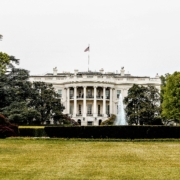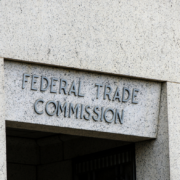NCL urges House Transportation Committee to demand answers from FAA on aviation safety
February 7, 2023
Media contact: National Consumers League – Katie Brown, katie@nclnet.org, 202-823-8442
WASHINGTON, D.C. — Today, the House Committee on Transportation and Infrastructure will hold a hearing focused on the need to enhance America’s aviation safety system. The committee calls the U.S. system a “gold standard” for the world. Unfortunately, the Federal Aviation Administration’s (FAA) previously sterling record in this area has been badly tarnished by the Boeing 737 Max scandal, operational meltdowns, and scary near-misses.
In particular, Congressional leaders must hold the FAA accountable for its failure to implement statutorily-required minimum dimensions for passenger seats. For decades, air carriers have reduced seat sizes across all fare classes. The result is that millions of travelers must fly under conditions that the FAA’s own advisory has deemed unsafe.
Fortunately, thanks to advocacy by NCL and other passenger rights organizations, momentum is growing for reform. In November, NCL along with a coalition of six public interest groups, filed comments with the FAA calling for a moratorium on airlines reducing seat sizes until the FAA can update its emergency evacuation standards. In December, Senators Baldwin and Duckworth introduced legislation requiring the FAA to update evacuation standards to reflect the modern cabin environment.
The following statement is attributable to NCL Vice President of Public Policy, Telecommunications, and Fraud John Breyault:
“Shrinking seats on airplanes have serious consequences, from impeding emergency evacuations to raising the risk of serious negative health effects. The FAA is more than three years overdue in complying with the law and addressing this problem. As the only agency in the nation responsible for aviation safety, the House Transportation Committee must ensure that the FAA does not continue to slow-walk critical aviation safety issues like setting minimum seat size standards.
We are disappointed that the first hearing on this issue in the new Congress will not feature any witnesses representing those who are most directly impacted by such safety oversight – namely, passengers. Nonetheless, NCL urges Congress to use this opportunity to ensure the executive branch’s compliance with air safety mandates.”
###
About the National Consumers League (NCL)
The National Consumers League, founded in 1899, is America’s pioneer consumer organization. Our mission is to protect and promote social and economic justice for consumers and workers in the United States and abroad. For more information, visit https://nclnet.org.























